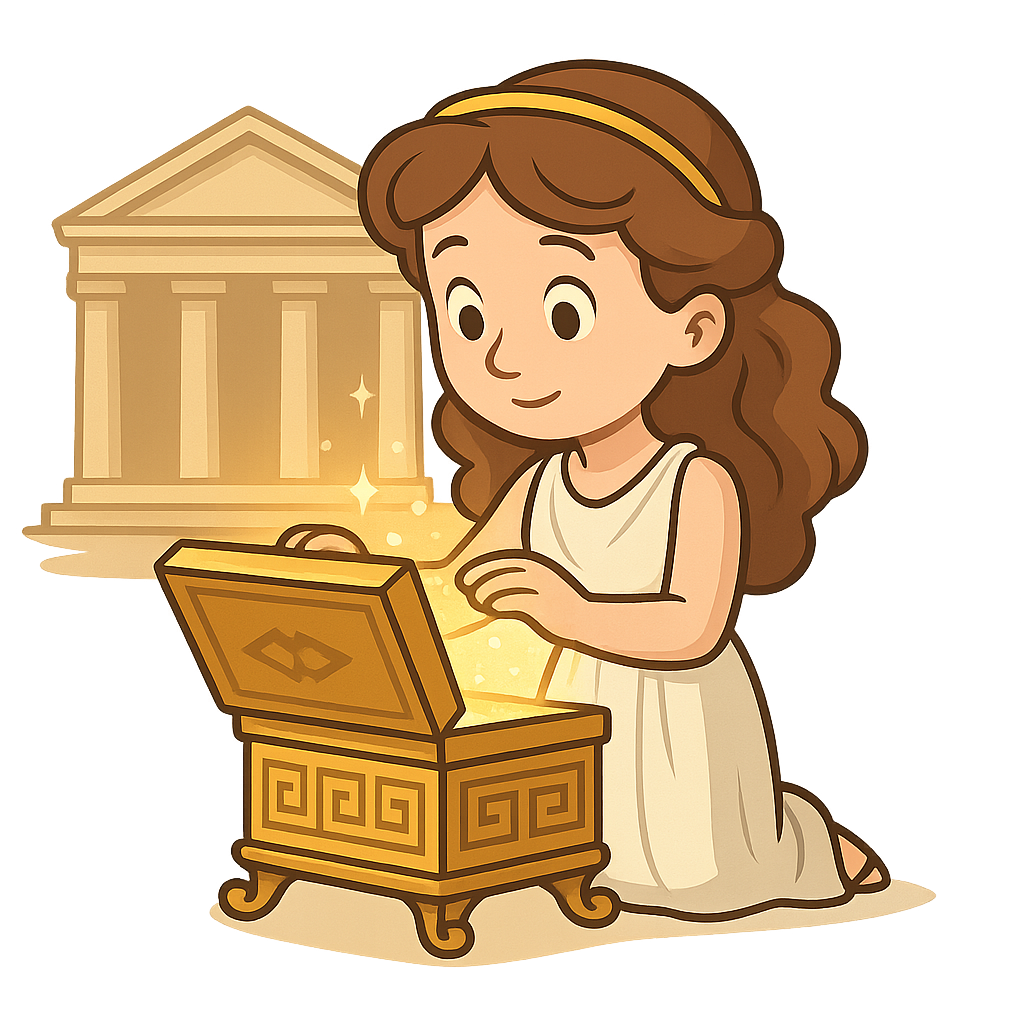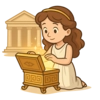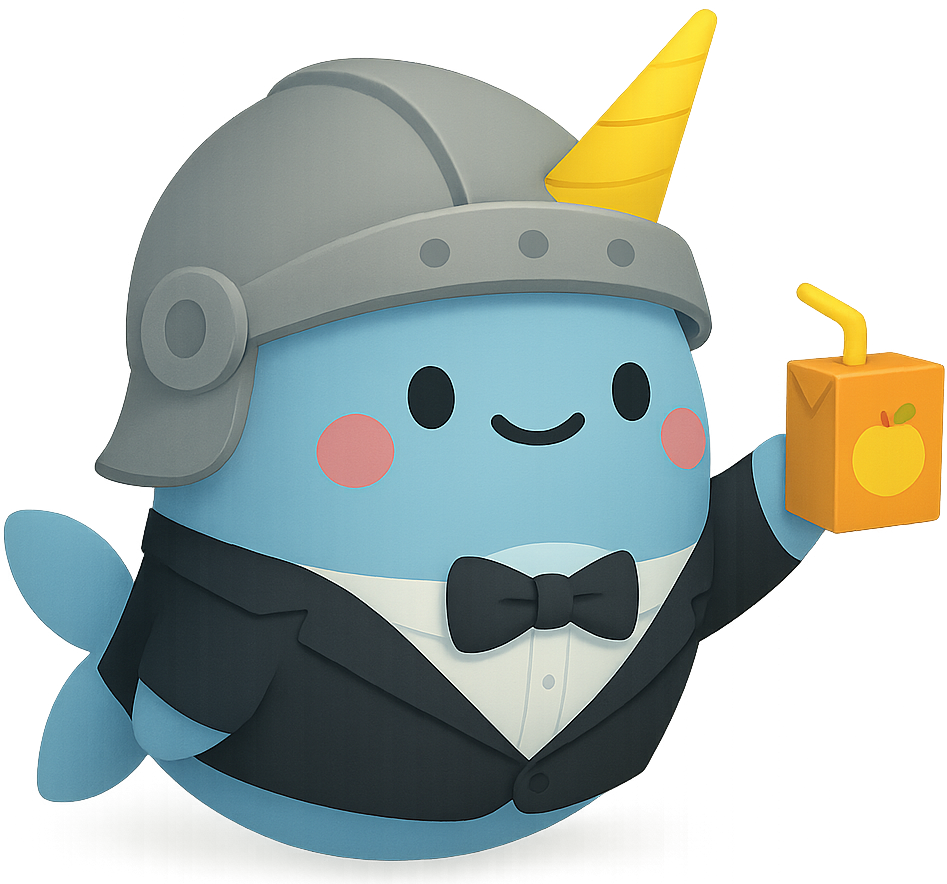The Myth of Pandora's Box
My name is Pandora, and I remember a time when the world was a sun-drenched garden, a perfect place where humanity lived without a single worry shadowing their days. Our home in ancient Greece was a haven of peace, and my wedding day to my dear husband, Epimetheus, felt like the pinnacle of that perfection. The air was thick with the sweet scent of jasmine, and the joyous sound of laughter echoed through the olive groves. It was a day of unblemished happiness, a memory I held onto like a precious gem. But even in a perfect world, perfection can be fragile. The mood shifted subtly, like the first cool breeze before a storm, when Hermes, the swift-footed messenger of the gods, descended from the heavens. His golden-winged sandals barely touched the earth before he presented us with a wedding gift from Zeus himself, the king of all gods. It was a box, exquisitely carved from a dark, polished wood I had never seen before. Intricate scenes of gods and mortals danced across its surface, so lifelike they seemed to move in the flickering torchlight. A heavy, ornate lock of gold and bronze secured it, promising secrets within. Hermes delivered it with a smile that didn't quite reach his eyes, and a warning that was as heavy as the box itself. "A gift from the mighty Zeus," he announced, his voice carrying the authority of Olympus. "He wishes you both joy. But you must heed this one command: Never, under any circumstances, are you to open this box." This is the story of that fateful gift, the myth of Pandora's Box.
The box sat in a quiet corner of our home, a silent, beautiful enigma. At first, I honored Zeus's command without question. Epimetheus, whose name means 'afterthought,' was content to leave it be, his mind blessedly free from the nagging curiosity that began to plague mine. Days dissolved into weeks, and the box transformed from a simple wedding gift into the center of my world. Its presence was a constant, humming weight in my thoughts. Did I truly hear faint whispers seeping from the cracks when the house was still? Was that a tiny, desperate scratching I heard late at night, a sound so faint Epimetheus never noticed? The curiosity gifted to me by the gods, intended to make me clever and inquisitive, began to feel like a curse, an unbearable itch deep within my soul. I tried to distract myself, pouring my energy into weaving intricate tapestries and tending to our flourishing garden, but my eyes would always drift back to the polished wood and the glint of its lock. "What could be inside?" I'd mutter to myself, my fingers tracing the carvings. "Surely Zeus wouldn't send something harmful as a wedding present. Perhaps it holds more wondrous gifts! Jewels brighter than the stars, silks softer than a cloud, knowledge of the gods themselves!" My mind spun with justifications. What harm could a single peek possibly do? I could just lift the lid for a second, satisfy this gnawing hunger, and close it again before anyone knew. The internal battle was exhausting, a tempest of desire versus duty. Finally, the moment came on a quiet, sun-drenched afternoon. Epimetheus was away in the fields, and the house was utterly silent, save for the frantic beating of my own heart. My hands trembled as I knelt before the box. The lock felt cold against my skin. With a deep breath that did nothing to calm my nerves, I found the latch and lifted the heavy lid. The immediate result was not the sparkle of jewels I had imagined. Instead, a horrifying, shadowy swarm erupted from the box, a tangible cloud of darkness that swirled into the air. They were not monsters with claws and teeth, but something far worse. They were cold, stinging spirits that carried with them all the troubles humanity had never known. I watched in frozen terror as Sadness, a spirit of chilling gray, swept out the window. It was followed by Sickness, a sickly green phantom, and Envy, a bitter, biting wisp. Pain, Greed, and a thousand other sorrows burst forth like a cloud of stinging insects, their malevolent whispers filling the air as they spread with unnatural speed across the world, extinguishing the light of our perfect existence.
With a scream of pure horror and regret, I slammed the heavy lid shut, the boom echoing in the now-chilling room. But it was far too late. The world had already changed. A cold draft snaked through our home, a wind that carried not the scent of jasmine, but the first hints of sorrow. Epimetheus and I could feel the shift deep in our bones. Laughter no longer came as easily, and a new weight settled upon our hearts. We huddled together, my tears of guilt soaking his tunic, lost in a despair as profound as the troubles now plaguing the world. Just as we resigned ourselves to this bleak new reality, I heard it. A tiny, fluttering sound, delicate and persistent, coming from inside the now-quiet box. It was nothing like the sinister whispers from before. This sound was light, almost musical. Hesitantly, fearing what else I might unleash, I reached for the lid one more time. I lifted it just a crack. From the very bottom of the box, a single, shimmering spirit emerged, bathed in a gentle, golden light. Her wings were like spun moonlight, and she fluttered gracefully into the air. This was Elpis, the spirit of Hope. She did not fly away to torment humanity. Instead, she circled our heads, her warm glow a balm against the encroaching cold. She was the one good thing Zeus had placed among the evils, a final, crucial gift. My story, first written down by the Greek poet Hesiod around the 8th century BCE, serves as a timeless explanation for the hardships of the world. But it's not just about why bad things exist; it's about the incredible, resilient power of what was left behind. The phrase 'opening Pandora's box' is still used today to describe an action that causes unforeseen problems. But people often forget the most important part of my story. Even when the world is filled with shadows and strife, even when all seems lost, that shimmering light remains. We always have hope, the one thing that gives us the strength to face the troubles we now know, a timeless idea that continues to inspire art, stories, and the enduring strength of the human spirit.
Reading Comprehension Questions
Click to see answer


